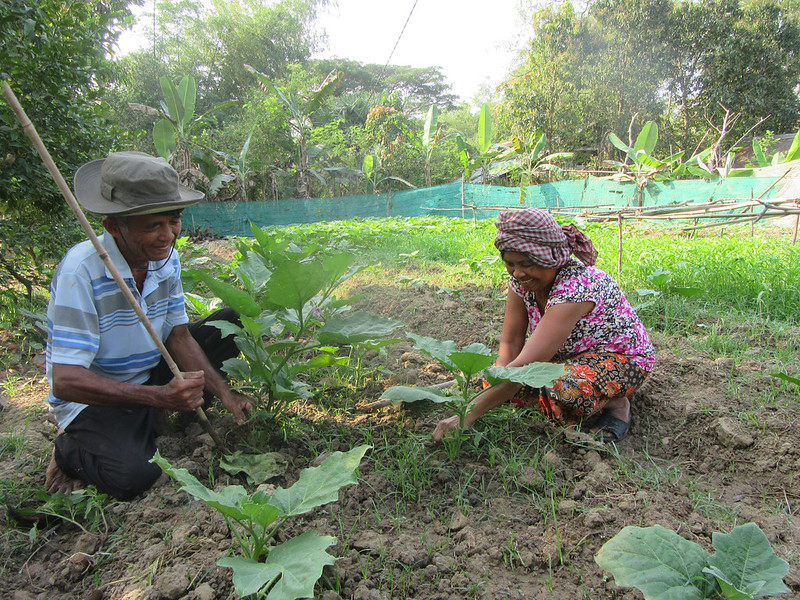
This project with long-term BGR partner Rachana aims to improve food security, health, gender equity, children’s educational opportunities, and living conditions for poor families and vulnerable individuals in rural Cambodia. While Cambodia has made great progress in reducing poverty over the past decade, extreme poverty remains widespread. The Covid pandemic has further increased food insecurity among vulnerable households, especially poor women, female-headed households, the elderly, and those who are ill or disabled. School closures mean that children with limited access to online learning platforms are at risk of falling behind in their studies; girls and young women are especially vulnerable.
Working in twenty villages in Cambodia’s Takeo province, Rachana will continue to support 240 family farmers’ ongoing use of climate-resilient rice cultivation techniques to increase resistance to drought conditions. This year, Rachana will expand its work by encouraging deeper engagement with local government and working three new schools to provide support for at-risk students. In addition to providing support for students, Rachana will work with teachers and school officials to help them become more effective mentors and advocates for people in the community. Their work will benefit more than 5,000 people, more than half of whom are women and girls.

This project with long-term BGR partner Rachana aims to improve food security, health, gender equity, children’s educational opportunities, and living conditions for poor families and vulnerable individuals in rural Cambodia. While Cambodia has made great progress in reducing poverty over the past decade, extreme poverty remains widespread. The Covid pandemic has further increased food insecurity among vulnerable households, especially poor women, female-headed households, the elderly, and those who are ill or disabled. School closures mean that children with limited access to online learning platforms are at risk of falling behind in their studies; girls and young women are especially vulnerable.
Working in twenty villages in Cambodia’s Takeo province, Rachana will continue to support 240 family farmers’ ongoing use of climate-resilient rice cultivation techniques to increase resistance to drought conditions. This year, Rachana will expand its work by encouraging deeper engagement with local government and working three new schools to provide support for at-risk students. In addition to providing support for students, Rachana will work with teachers and school officials to help them become more effective mentors and advocates for people in the community. Their work will benefit more than 5,000 people, more than half of whom are women and girls.




